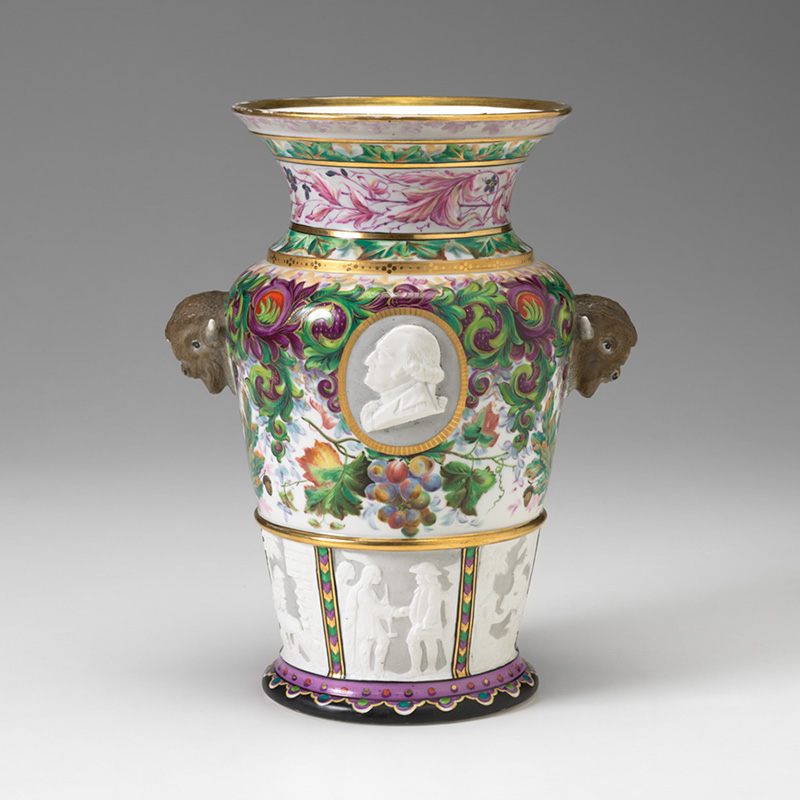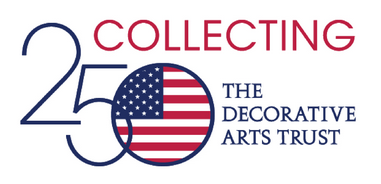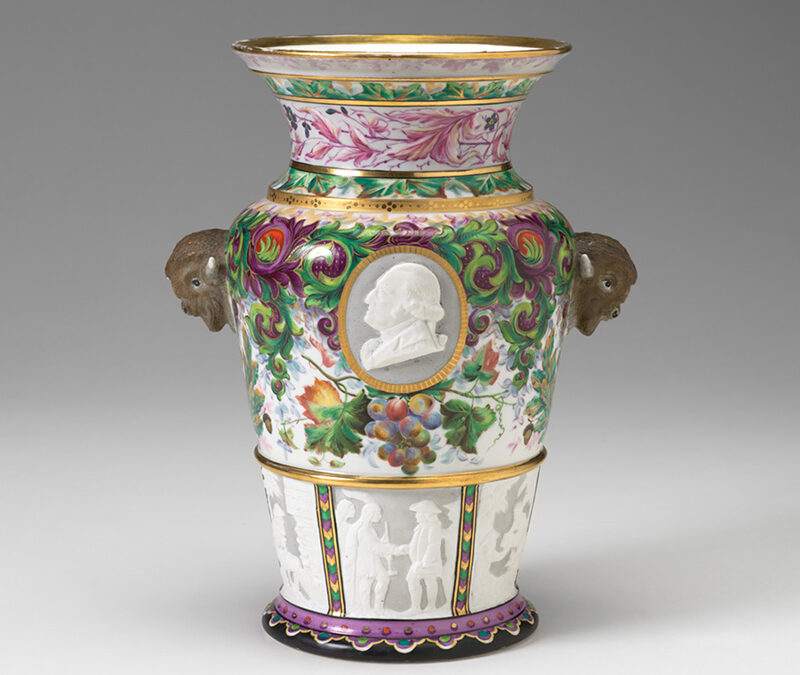
| Maker | Karl l. H. Müller, American, born Germany, c. 1820–81 (Designer), Union Porcelain Works, American, active 1863–c. 1922 (Manufacturer) |
| Date of Creation | 1876–77 |
| Location | New York, Greenpoint (now Brooklyn) |
| Materials | Porcelain with bisque and glazed surfaces, partially painted and gilded |
| Institution | Virginia Museum of Fine Arts, Richmond |
| Credit Line | J. Harwood and Louise B. Cochrane Fund for American Art and partial gift of Robert Hunter and Marshall Goodman |
| Accession Number | 2012.7 |
| Photo Credit | Photo by Travis Fullerton © Virginia Museum of Fine Arts |
One of the most iconic of American porcelain forms, this vase belongs to a small group of objects produced to the design of German-born sculptor Karl L. H. Müller by the Brooklyn-based firm Union Porcelain Works. Boasting two portrait medallions of George Washington and handles modeled on North American bison heads, each vase features a series of six biscuit-relief plaques depicting key figures and themes in American history. Moreover, a benchmark of artistic merit, this vase boasts superb enamel work in a complex pattern of oak leaves and acorns among berried branches and grapevines. Adding to the quality of its execution is the rare artist’s mark—only one other such example is known—suggesting it may have been produced by Müller himself. First unveiled in monumental scale at the 1876 Centennial International Exhibition, held in Philadelphia, the vases were intended as a visual record of America’s progress through its first century of independence. But its technical virtuosity also highlights the prowess of a rapidly expanding and industrializing United States ambitious to establish itself as an economic player on the international stage. By the end of the century, in the wake of the Spanish-American War (1898), America had solidified its place as a global power.

